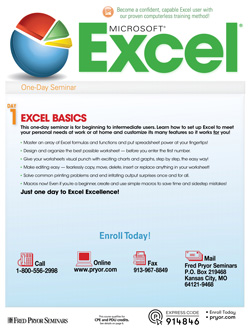Develop emotional intelligence for stronger relationships, smarter leadership and greater career success
What is emotional intelligence, and why is it important in the workplace?
Emotional intelligence (EQ) is the ability to understand and manage your own emotions while effectively interacting with others. In the workplace, high EQ contributes to stronger communication, better teamwork, improved leadership and greater resilience under pressure. It directly impacts productivity, performance and job satisfaction.
Who should attend the Developing Emotional Intelligence seminar?
This seminar is ideal for professionals at all levels who want to build stronger workplace relationships, communicate more effectively and lead with confidence. It's especially valuable for team leaders, managers and anyone looking to improve collaboration, adaptability and emotional awareness in a professional setting.
What skills and takeaways can I expect from this training?
You’ll learn how to assess your current EQ, identify communication strengths and weaknesses, and develop tools for emotional self-awareness, control and motivation. The course also covers strategies for empathy, building rapport, managing team dynamics and creating more positive, productive interactions with others.

Connect. Communicate. Collaborate—with Confidence.
Develop emotional intelligence for stronger relationships, smarter leadership and greater career success
Download BrochureUnderstanding Intelligence and EQ
- What is intelligence? Defining IQ and what influences it
- Emotional intelligence: key traits that set it apart
- Why EQ matters more than ever in today’s workplace
Self-Awareness: The Foundation of EQ
- Understanding your personal style and its impact on others
- Introvert, extravert, thinker, feeler — where do you land?
- How personality preferences shape your interactions
- Self-awareness: the first step to building emotional intelligence
- Use the Self-Assessment Checklist to evaluate your current EQ
- The value of feedback in developing greater self-awareness
Emotional Management and Self-Control
- How your left and right brain influence emotional reactions
- The connection between emotional intelligence and effective leadership
- The power of beliefs in shaping emotions and behaviors
- Managing irrational thoughts and overcoming negative emotions
Attitude, Motivation and Personal Growth
- Identifying opportunities for growth and forward movement
- How emotions influence attitude, ability and motivation
- Using motivation to silence inner critics and push past doubt
- Maslow’s Hierarchy of Needs: what drives your motivation?
- Optimism vs. pessimism — and how they shape outcomes
- Shifting from a negative to a positive mindset
- Setting SMART goals for personal and professional success
Social Competency and Relationship Building
- The role of empathy in listening, connecting and building trust
- Building rapport and strong professional relationships
- Political awareness and its role in workplace success
- Communicating effectively across different personality types
- Mastering active listening and nonverbal communication
- How to adapt your tone and body language for clearer messaging
- Using EQ to strengthen team dynamics and collaboration
- Emotional intelligence in action: building your future plan


